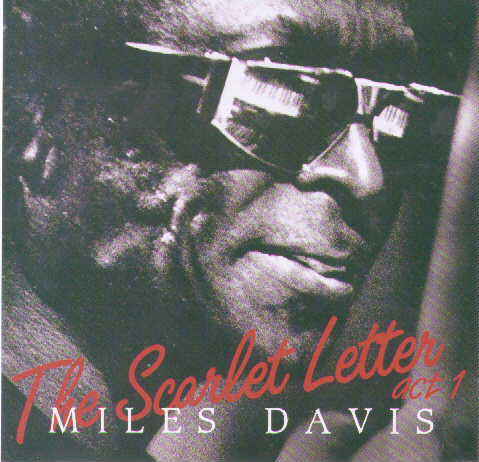Inauguration 2005 - BUSH WATCH
The Eve of Destruction
George Bush is getting four more years to remake the world in his image. (Too bad for us, he already started.)
by Rick Perlstein - VILLAGE VOICE
January 18th, 2005 2:37 PM You might wonder--were you someone unfamiliar with or in denial about the ways of the Karl Rove Mafia--how George W. Bush could blunder into nominating someone as attorney general so obviously implicated in the most legally questionable and morally indefensible practices of his administration. You might wonder, too, how the administration seemed to be caught unawares by the bottomless pit of scandal in the past of its initial nominee for Homeland Security secretary.
Or you could realize that such nominations were not blunders, but intentional: that they were made not in spite of Alberto Gonzales's and Bernard Kerik's unsuitability for high office but precisely because of them. Keeping embarrassing facts on file about confederates is the best way to grip them into loyalty like a vise.
It would seem an incredible notion to contemplate, until you examine who it was Bush chose to replace Kerik once his nomination fell through: Michael Chertoff, who as assistant attorney general in the Justice Department's criminal division engineered the plan to preventively detain immigrants of Arab descent after 9-11. In 2003, the Justice Department's own inspector general warned that the program raises serious legal liability questions, and Justice Department officials apparently recommended that Chertoff hire a lawyer. Now he's been promoted. Sopranos fans will recognize the maneuver: Taking someone with skeletons in his closet close to your breast is just like Tony's embrace of the apparently upstanding suburban New Jersey sporting goods dealer with the secret gambling addiction, specifically to have someone to pick clean when the necessity arose.
Forcing a guy who knows he's dirty but knows his bosses are dirtier to sweat out a congressional hearing is a perfect way to test his loyalty. It's also a great way to test Congress's mettle--to probe just how atrophied the opposition party's willingness to oppose has become. What's more, once you've got them through the ordeal, you've stockpiled one more scapegoat to toss into the fire in case Congress ever gets hot on the trail of the higher-ups who issued the orders. And it establishes a record for a future defense: Once Congress has confirmed a Gonzales or a Chertoff, how can it then turn around and call the things done by a Gonzales or a Chertoff unlawful?
Then there's the implicit dare, which frames the issue in the administration's favor whether they "win" or "lose" the proximate fight: Go ahead, Democrats, make our day. Vote against them. Then we can show you up as the obstructionists to America's national security you are.
The administration may even have made plans for when the bottom drops out--for when the inevitable indictable offenses see the light of day. That's where Alberto Gonzales, White House ?ber-loyalist, comes in. Formally, any investigation of a federal criminal offense is conducted by the Justice Department, and no indictment can go forward without Gonzales's say-so. Under the old set of rules, we might have been able to count on political pressure to force the appointment of a special prosecutor, as occurred in the investigation of the leak of CIA agent Valerie Plame's name to the media. But that's exactly the set of rules this gang has set its sights on upending.
Mr. and Mrs. America and all the ships at sea, welcome to the Next Four Years: to George Walker Bush's revolutionary second term, where nothing is done by accident, and no sin can be too brazen.
"For the first time in six decades, the Social Security battle is one we can win . . . "
That phrase is a gun, and it's smoking. Written by Karl Rove deputy Peter Wehner in a leaked memo, it establishes as intention what administration officials have heretofore been most eager to cover up. What the Republican Party failed to do 60 years ago is to stop any federal program of guaranteed old-age insurance from existing. Social Security established a principle unacceptable to many Republicans: that government economic programs help people, and can become wildly popular. Now, however, Wehner writes, "We have it within our grasp to move away from dependency on government. . . . We can help transform the political and philosophical landscape of our country."
The smoking gun isn't pointed just at your grandmother.
When Americans have at a minimum almost a third of their retirement contribution in corporate investments--we now send 6.2 percent of our income to Social Security, and Bush's plan would have us putting four of those 6.2 points into the stock market--we will all be part of, in the apparently benign coinage of Republican propagandist Grover Norquist, the "investor class."
Blogger Nick Stoller describes the consequences thus:
"When someone like Eliot Spitzer uncovers a major corporate scandal, a Republican will be able to say, 'He's attacking your retirement fund.'
"When the employees of a company try to unionize, a Republican will be able to say, 'They are attacking your retirement fund.' " (He will also be able to say they are attacking their own retirement fund.)
"When a community refuses to let a Wal-Mart build in their neighborhood, a Republican will be able to say, 'They're attacking your retirement fund.' "
Environmental regulations will be framed as an attack on your retirement fund. Liability law, too. Corporate taxes, certainly. Maybe even, someday, child labor laws (that's the brazenness: Conservatives never shy from putting forth agendas that seemed unimaginable a year ago). People will presume it is in their interest for the companies in which they hold a temporary position to goose their stock no matter the long-term cost to the corporation, to our institutions, to society as a whole--no matter the long-term cost for all the other classes we belong to, as consumers, as workers, as citizens. All but a tiny group of big-ticket investors would benefit far more on a net basis, as they do now, from the maintenance of a strong welfare state. No matter: The propaganda may prove irresistible.
Breaking Social Security is central to passing Bush's "tax reforms," which will remove taxes on investment income and shift the tax burden to wage earners who can't afford to save any money--thereby creating newly outraged tax-hating constituencies bent on decimating government's legitimacy yet further. Absent unrelenting Democratic resistance, in fact, the next four years will establish the leverage to fulfill another of Grover Norquist's coinages: to get the federal government "down to the size where we can drown it in the bathtub."
That's just how the Bushies do things: They plan. Every action is calculated to set in motion a cascade of consequences, to change the world. Take "No Child Left Behind," the education "reform" so brilliantly named you can't be against it without betraying some perverse desire to, well, leave children behind. It is a stone hustle, meant to lay the groundwork to destroy the entire American public school system.
Look at it this way. You've heard of the Trends in International Mathematics and Science Study, the one that produces those anguished news reports every four years about all the countries American schoolchildren lag behind in basic skills. But according to the TIMSS, if Minnesota were a country, it would have the second-best science scores and the seventh best in math. By No Child Left Behind's statutorily required benchmarks of "Adequate Yearly Progress," however, only 42 percent of Minnesota fourth-graders were proficient in math. And NCLB's test targets increase every year. So by one estimate, in 2014, some 80 percent of the schools in Minnesota's world-class education system will be rated "failures."
The benchmarks are insane, you see. If one group within a school out of the 37 categories NCLB measures "fails," the entire school does. Which means, according to the president of the American Educational Research Association, 12th-graders should be proficient in math in exactly 166 years.
Which serves the administration's purpose admirably. Failure, glorious failure: In Chicago, the city must now offer 200,000 students the chance to move out of "failed" schools--but there are only 500 spaces in which to place them elsewhere. So now the public school system must be destroyed.
It's only politics. It was the first George Bush who tried to initiate the privatization of American education but failed; in 2000, Michigan and California pro-voucher ballot initiatives lost by at least two to one. But that was back when 43 percent of American parents gave their children's schools a grade of "A" or "B." By 2004, that number was cut in half. "The tests mandated by NCLB had ripped back the curtain and exposed a major national problem," explains Phyllis Schlafly--even, apparently, in noble Minnesota.
The money has already begun changing hands. "Classroom methods long believed to work are tossed out in favor of those that a few selected groups have tested and approved," The Nation recently reported in a story buried--it's hard to get people to pay attention--on the magazine's website. Bush's multibillion-dollar reading grants, the weekly found, are doled out by "a panel that includes many people with ties to various commercial curriculums."
Public education "is an ossified government monopoly," explains conservative intellectual Chester Finn. So it is time to drown it in the bathtub.
The fantasy of total control has emerged as central to the Bush administration imagination. It comes out in the unguarded utterances: the aide who blurts to a New York Times reporter that he was just one more sad-sack member of the "reality-based community." ("That's how things will sort out. We're history's actors . . . and you, all of you, will be left to just study what we do.") The president demanding during the Iraq debate to congressional leaders, "Look, I want your vote. I'm not going to debate it with you." A White House aide, to a congregation of Pentecostal ministers, the "current government is engaged in cultural, economic, and social struggle on every level."
It shows up in the tautological narcissism of Bush's National Security Strategy document, which actually uses the phrase "the best defense is a good offense," and artfully constructs a vision in which whatever the United States does to preserve its interest is always already "peaceful," even when it requires war, is always already "democratic," even when it requires installing governments by fiat, is always already selfless, even as it establishes only two categories of states, those who cooperate and those who do not, in a situation of crisis defined unilaterally and whose time horizon stretches to infinity.
"In the new world we have entered," it avers, "the only path to peace and security is the path of action." The manifesto takes on ominous overtones when read alongside the famous post-9-11 draft Pentagon report that establishes a royalist conception of "sweeping" executive power as the only way to keep us safe: because "national security decisions require the unity in purpose and energy in action to characterize the presidency rather than Congress."
"Unity in Purpose, Energy in Action"--more than one commentator has noted its resemblance to slogans of fascist movements throughout history.
And of course out of fantasies of perfect control have always sprung the world's greatest human catastrophes. There will always be things even the most energetic executive cannot come even close to controlling. Conservatives used to warn us about the dangers of such utopianism--of the unintended consequences of hubristic attempts to "socially engineer" brave new worlds conjured in the heads of liberal intellectuals. Now Americans are once again learning that lesson, but the perpetrators are . . . conservatives.
And their utopia, heaven help them, is Iraq.
What comes next there? For the subject who fantasizes total control, chaos is only an injunction to more radically confident maneuvers that enlarge the struggle for control. As always, the parallel is Vietnam. "The administration's reluctance to recognize the Iraqi resistance as largely homegrown pushes it to exaggerate the role of foreign terrorists, to blame anti-American feeling on meddlers from abroad," which spells expansion of the conflict into Syria and Iran, according to Thomas Powers in The New York Review of Books. A "radical map change," he convincingly speculates, this American encirclement of the world's productive oil resources could unify all our present allies against us in a conflict that "might last fifty years."
The next four years? Anticipate another possible terrorist attack, certainly. Tommy Thompson, leaving his post as secretary of Health and Human Services, used his newfound freedom to wonder aloud why his bosses hadn't done anything to prevent an attack on "our food supply, because it's so easy to do." The EPA said an attack on any of 123 chemical plants would threaten over a million people--then the Department of Homeland Security took over the job, changed the measurements, and found that only two would do that. The chemical industry gives a hell of a lot of money to the Republicans.
Although the wholesale collapse of the American economy would be worse. Nikita Khrushchev used to call the divided city of Berlin, because of its military strategic value, "the testicles of the West," which he only need squeeze to make America scream. Now the testicles of the U.S. are the billions of dollars of American currency held in reserve by countries that do not necessarily wish us well, like China--in effect, it's the money we borrow to keep our economy afloat. China is one of those countries that would likely object to our encirclement of the world's petroleum supplies. Soon enough, China's oil demand will approach our own. If Beijing chooses to call in its loans to us and make the dollar a worthless currency, sensible folks might be looking for someone to impeach. Would Bush's kept Congress be able to do the job?
At that pass, reflects John Dean, Richard Nixon's legal counsel, who served time for Watergate, "only the attorney general can select a special counsel to prosecute." Which takes us back to the beginning, and last week's hearings. "As attorney general," Dean says, "Gonzales can resist any and all efforts to prosecute high officials of the Bush administration, absent photographs of Dick Cheney choking Condi Rice and dangling her off the Memorial Bridge for messing with his policies."
Welcome to the eve of destruction
Posted by euroregions
at 4:40 AM EST
Updated: Thursday, 20 January 2005 4:52 AM EST





